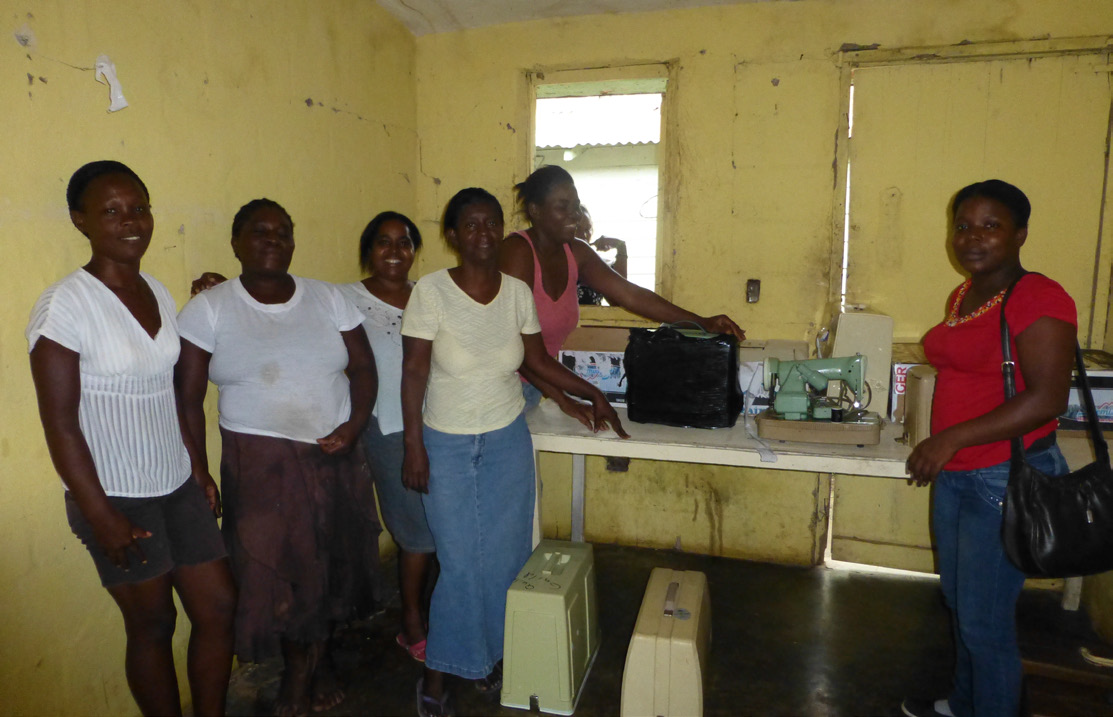by Patricia Hamill
Fall 2013 InGear
High rates of unemployment, alcohol abuse, and teenage pregnancy. Little or no access to free or inexpensive transportation to good schools and employment opportunities. Our inner cities and rural areas are locations of potential concern for us, but, with multiple petitions, appeals to government officials, and perhaps celebrity involvement, communities may very well gain financial allotments for educational and environmental programs that enable at-risk youth to climb out of fiscal uncertainty and create financial independence. But what if the country is not large or powerful enough to compete for international attention of consequence or if the bedrock of the growing economy such as tourism and retail is not of benefit to those in remote locations? What if international celebrities have overlooked a place in need in their quest for the highest return on their sponsorship? The solution to the cycle of poverty must rest solely on a community’s ingenuity, savvy entrepreneurs, and established nonprofits who work in remote areas or small countries that don’t often rate primetime news coverage.
In the Monte Plata region of the Dominican Republic, the rural community of El Caño is in the process of developing its own sustainable niche in the economic development of this country. The financial divide here is not unfamiliar.
According to the 2013 Index of Economic Freedom, published by the Heritage Foundation with the Wall Street Journal, “Corruption, wasteful government spending, and unreliable electric service reduce investment returns, driving high unemployment.” Much of the country’s wealth is not trickling down.
The community of El Caño had, at one time, a functioning sewing project in place, but this ended when the partnership with the NGO dissolved. Then came the students of Boston’s Northeastern University who visited El Caño as part of their Social Enterprise Institute’s (SEI) Innovation Consulting Project. Students conducted an asset map and quickly learned about the community’s needs in order to increase their marketable skills and income.
As a result, the idea for the Cooperativa de Costura de El Caño (CCC) was born. The students then developed a partnership with the nonprofit MOSCTHA (Socio-Cultural Movement for Haitian Workers). Originally formed to focus on human rights, advocacy, and infrastructure services for oppressed Haitians, MOSCTHA has expanded it’s work in “improving and empowering underrepresented communities” to the Dominican Republic.
To replace the sewing machines that departed with the previous NGO, Pedals for Progress has stepped up to the plate and arranged delivery of 13 sewing machines for the approximately 28 sewers who range from younger to older men and women. All are welcome to join the co-operative. When the CCC reached out to P4P, they requested foot-operated manual machines. This would logically be in consideration of unreliable electric power and thus be another way to avoid pitfalls to production schedules and project development. Unfortunately, at the time of this writing, P4P could only find one to send them.
Once the sewing machines arrive, output of products like table cloths and school uniforms can resume and the members of the CCC will return to selling their goods to neighboring communities and even to people in Santo Domingo, the capital of the Dominican Republic. Catalogs of the co-operative’s products, created by participating Northeastern students, will enable the CCC to promote more goods to a wider segment of the population. This income will gradually empower their younger generation by providing access to higher education, gainful employment, and comfortable and safe living conditions.
This type of sponsored self-sufficiency looks to be a promising antidote to the socioeconomic pitfalls poor and uneducated people must overcome in order to enjoy the advantages many of their fellow countrymen already have. Thanks to the partnership and cooperation of the students of Northeastern University, MOSCTHA, and P4P, the men and women of El Caño have and maintain gainful employment and the dignity and respect that comes from participation in your present and control over your future.

